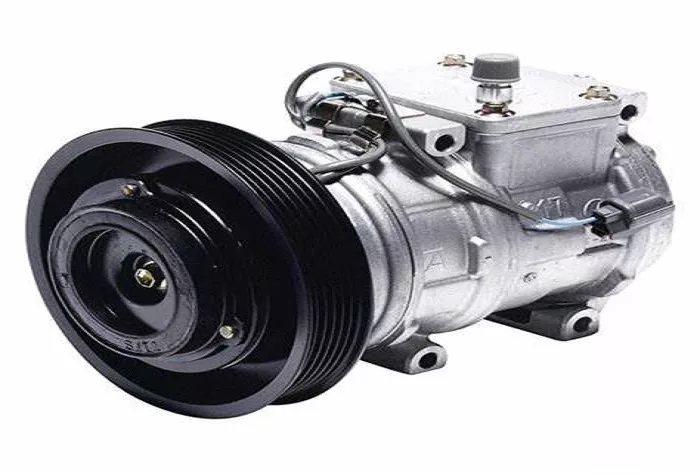Honda vehicles are known for their reliability, but like any other car, they can experience issues—especially with the air conditioning (AC) system. One of the most common and costly failures in Honda AC systems is compressor failure. Understanding why Honda AC compressors fail is essential for mechanics, technicians, and car owners who want to prevent or address these issues effectively.
Understanding the Role of the AC Compressor
- Compresses Refrigerant: The compressor pressurizes the refrigerant (usually R134a or R1234yf) and circulates it through the system.
- Maintains Cooling Cycle: Without a functioning compressor, the refrigerant cannot flow, and the AC system will not cool.
- Lubricates the System: The compressor also distributes oil to keep internal components lubricated.
When the compressor fails, the entire AC system stops working, leading to discomfort and potential damage to other components.
Common Causes of Honda AC Compressor Failure
Lack of Lubrication (Oil Starvation)
Problem
The compressor requires proper lubrication to prevent metal-on-metal friction. If refrigerant oil levels are low, internal components (such as pistons, bearings, and seals) wear out prematurely.
Causes
- Refrigerant Leaks: If the system leaks refrigerant, it also loses oil over time.
- Improper Servicing: Adding too much or too little oil during AC repairs can lead to lubrication issues.
- Oil Breakdown: Over time, oil degrades and loses its lubricating properties.
Symptoms
- Loud grinding or squealing noises from the compressor.
- Overheating and seizure of the compressor clutch.
Contaminants in the AC System
Problem
Dirt, debris, or moisture inside the AC system can damage the compressor.
Causes
- Improper Flushing During Repairs: If the system isn’t properly cleaned after a compressor failure, metal shavings or debris can circulate.
- Moisture Ingress: Water in the system reacts with refrigerant, forming acidic compounds that corrode internal parts.
- Failed Desiccant (Receiver/Drier or Accumulator): The desiccant absorbs moisture; if it’s saturated, contaminants enter the system.
Symptoms
- Reduced cooling performance.
- Black debris in refrigerant lines.
- Frequent compressor clutch cycling.
Electrical and Clutch Failures
Problem
The compressor clutch engages and disengages to control refrigerant flow. If it fails, the compressor won’t turn on.
Causes
- Worn Clutch Bearing: Over time, the bearing wears out, causing noise or complete failure.
- Electrical Issues: Faulty relays, fuses, or wiring can prevent the clutch from engaging.
- Excessive Heat: Prolonged use in high temperatures can weaken the clutch coil.
Symptoms
- AC blows warm air.
- Clicking sound when the AC is turned on (failed clutch engagement).
- Burnt smell from the clutch coil.
Refrigerant Overcharge or Undercharge
Problem
Incorrect refrigerant levels strain the compressor.
Causes
- Undercharging: Low refrigerant leads to poor lubrication and compressor overheating.
Symptoms
- High-pressure AC system warnings.
- Compressor cycling rapidly on and off.
- Reduced cooling efficiency.
Blocked or Restricted AC Components
Problem
- A blockage in the condenser, expansion valve, or filter restricts refrigerant flow, forcing the compressor to work harder.
Causes
- Clogged Condenser: Dirt or debris blocks airflow, increasing pressure.
- Faulty Expansion Valve: Stuck open or closed, disrupting refrigerant flow.
- Collapsed Refrigerant Lines: Kinked or damaged hoses restrict circulation.
Symptoms
- High-pressure readings on AC gauges.
- Compressor overheating and shutting off.
Manufacturing Defects (Certain Honda Models)
Problem
- Sudden compressor failure without warning.
- Repeated failures even after replacement.
How to Prevent Honda AC Compressor Failure
Regular AC System Maintenance
- Check Refrigerant Levels: Ensure proper charge (not too high or low).
- Inspect for Leaks: Use UV dye or electronic detectors to find leaks early.
- Replace the Receiver/Drier or Accumulator: Every time the system is opened.
Use Quality Replacement Parts
- OEM or High-Quality Aftermarket Compressors: Cheap compressors often fail prematurely.
- Proper Refrigerant Oil: Use the correct type (PAG or ester oil) and quantity.
Flush the System After Failure
- If the compressor fails, metal debris can remain in the system. Always flush lines and replace the condenser (if necessary).
Avoid Overworking the AC System
- Use the “Max AC” setting sparingly to reduce strain.
- Don’t run the AC at maximum for extended periods in extreme heat.
Conclusion
Honda AC compressors fail due to multiple factors, including lubrication issues, contamination, electrical failures, refrigerant problems, blockages, and manufacturing defects. By understanding these causes, technicians and car owners can take preventive measures to extend compressor life.

